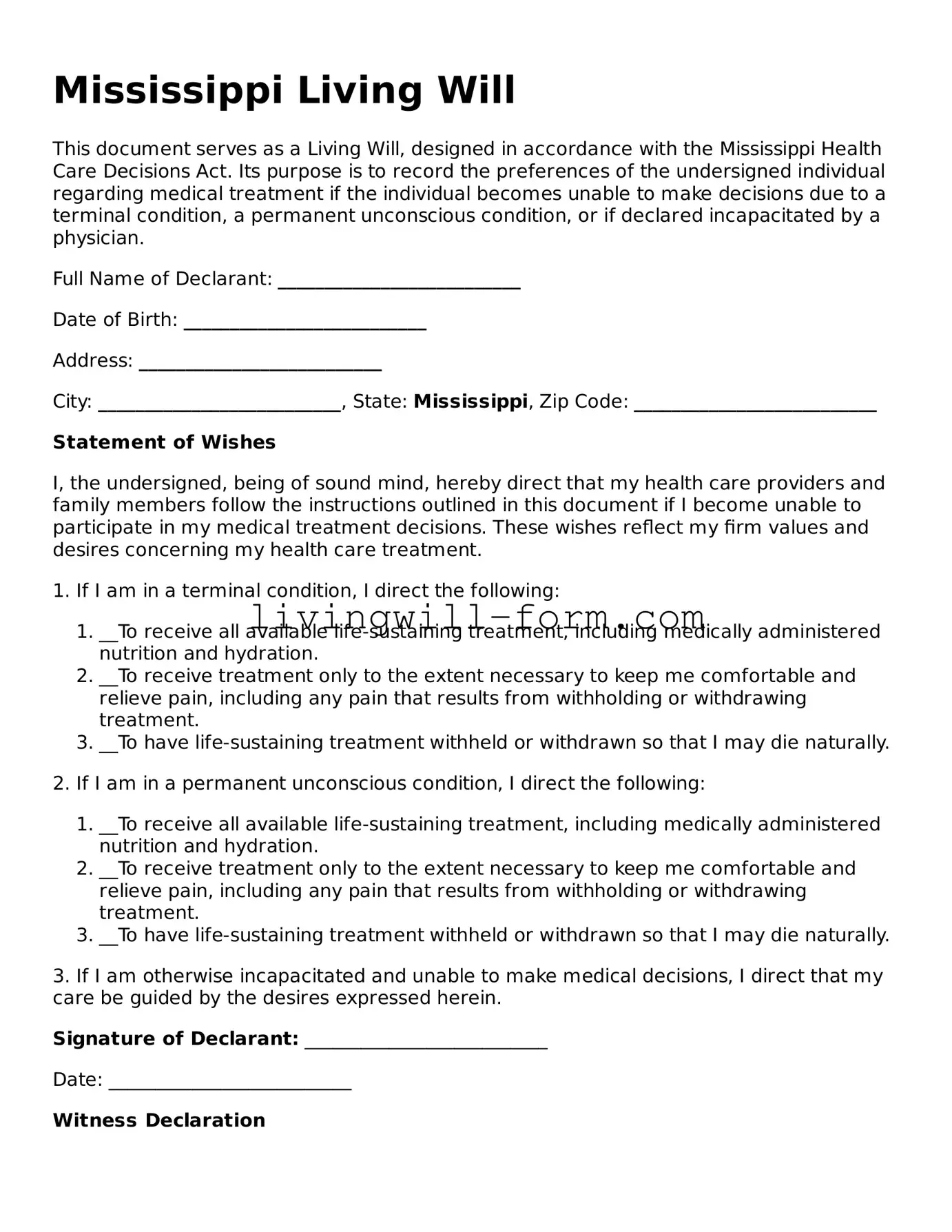Mississippi Living Will
This document serves as a Living Will, designed in accordance with the Mississippi Health Care Decisions Act. Its purpose is to record the preferences of the undersigned individual regarding medical treatment if the individual becomes unable to make decisions due to a terminal condition, a permanent unconscious condition, or if declared incapacitated by a physician.
Full Name of Declarant: __________________________
Date of Birth: __________________________
Address: __________________________
City: __________________________, State: Mississippi, Zip Code: __________________________
Statement of Wishes
I, the undersigned, being of sound mind, hereby direct that my health care providers and family members follow the instructions outlined in this document if I become unable to participate in my medical treatment decisions. These wishes reflect my firm values and desires concerning my health care treatment.
1. If I am in a terminal condition, I direct the following:
- __To receive all available life-sustaining treatment, including medically administered nutrition and hydration.
- __To receive treatment only to the extent necessary to keep me comfortable and relieve pain, including any pain that results from withholding or withdrawing treatment.
- __To have life-sustaining treatment withheld or withdrawn so that I may die naturally.
2. If I am in a permanent unconscious condition, I direct the following:
- __To receive all available life-sustaining treatment, including medically administered nutrition and hydration.
- __To receive treatment only to the extent necessary to keep me comfortable and relieve pain, including any pain that results from withholding or withdrawing treatment.
- __To have life-sustaining treatment withheld or withdrawn so that I may die naturally.
3. If I am otherwise incapacitated and unable to make medical decisions, I direct that my care be guided by the desires expressed herein.
Signature of Declarant: __________________________
Date: __________________________
Witness Declaration
This document was signed in my presence by the Declarant who appeared to be of sound mind and not under duress, fraud, or undue influence. I am not related to the Declarant by blood or marriage, not entitled to any portion of the Declarant's estate upon death, and not directly financially responsible for the Declarant's medical care.
Name of Witness 1: __________________________
Signature of Witness 1: __________________________
Date: __________________________
Name of Witness 2: __________________________
Signature of Witness 2: __________________________
Date: __________________________

